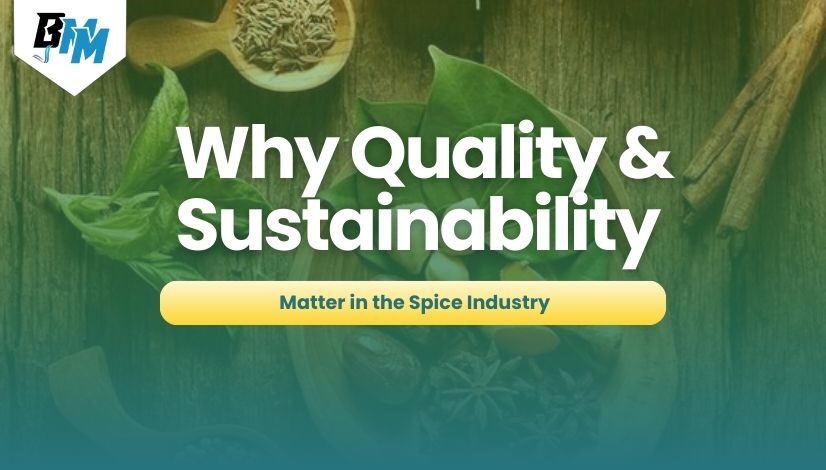Why Quality and Sustainability Matter in the Spice Industry
The Importance of Quality in Spices
Ensuring Customer Satisfaction
Quality is paramount in the spice industry, as it directly affects the flavor and health benefits of the spices. High-quality spices ensure that customers get the best taste and maximum nutritional benefits from their purchases. Spices that are fresh, aromatic, and free from contaminants enhance culinary experiences and provide essential health benefits, including anti-inflammatory and antioxidant properties.
Building Brand Reputation
For businesses in the spice industry, maintaining high quality is crucial for building and sustaining a strong brand reputation. Consumers are more likely to trust and return to brands that consistently deliver superior products. This trust translates into customer loyalty and positive word-of-mouth marketing, which are invaluable for long-term business success.
The Role of Sustainability
Environmental Responsibility
Sustainability in the spice industry is essential for protecting the environment. Sustainable farming practices, such as crop rotation, organic farming, and integrated pest management, help preserve soil health and biodiversity. These practices reduce the environmental impact of spice production and ensure that resources are available for future generations.
Economic Benefits for Farmers
Sustainable practices also have significant economic benefits for farmers. By adopting sustainable methods, farmers can achieve better yields and higher quality crops, leading to increased income. Additionally, sustainability initiatives often include fair trade practices, ensuring that farmers receive fair compensation for their efforts. This economic stability encourages farmers to continue investing in sustainable practices, creating a positive feedback loop.
Meeting Consumer Demand
Growing Preference for Ethical Products
Today’s consumers are increasingly aware of the environmental and social impact of their purchases. There is a growing demand for ethically produced and sustainably sourced products. By prioritizing sustainability, spice companies can meet this demand and attract a broader customer base. Offering sustainable products not only helps the environment but also resonates with consumers’ values, leading to increased sales and customer loyalty.
Differentiating in the Market
In a competitive market, sustainability can be a key differentiator. Companies that commit to sustainable practices can set themselves apart from competitors who do not prioritize these values. This differentiation can be leveraged in marketing strategies to attract environmentally conscious consumers and gain a competitive edge.
Conclusion
In conclusion, quality and sustainability are critical in the spice industry. They ensure customer satisfaction, build brand reputation, protect the environment, and provide economic benefits to farmers. By focusing on these aspects, spice companies can meet consumer demand for high-quality, ethically produced products and differentiate themselves in a competitive market. Prioritizing quality and sustainability is not only good for business but also essential for the long-term health of the planet and its inhabitants.



